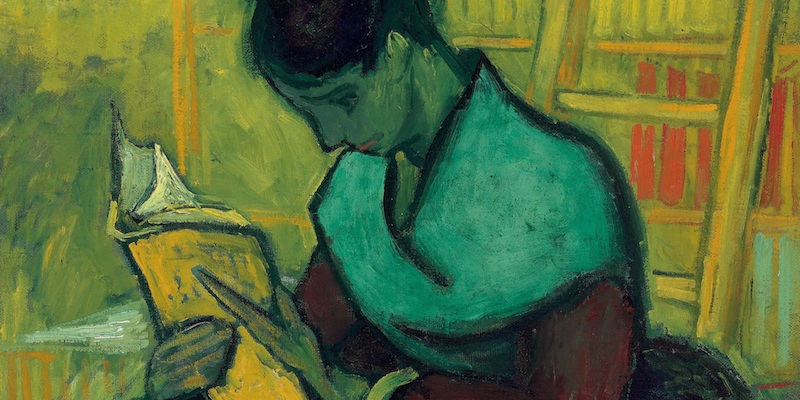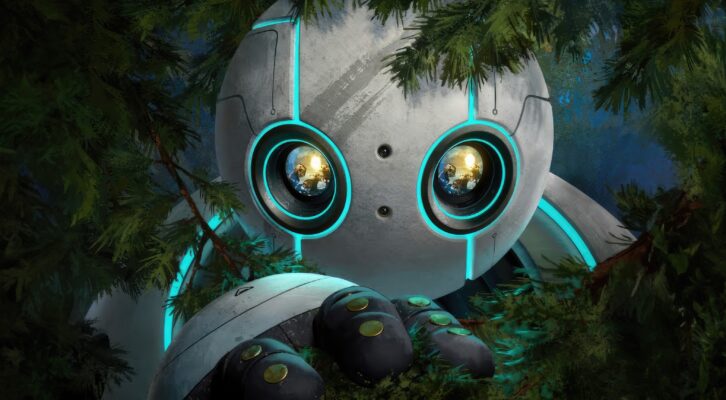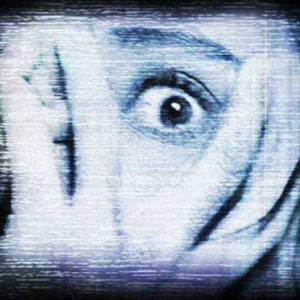I like to read books that compel the reader to keep turning the page. It’s that 1am moment: just one more chapter? And the suspense novel has all the ingredients for a through-the-night read. Take a sprinkling of relatable, engaging characters drawn from everyday life, throw them into a situation dripping with jeopardy, add unreliable narration to taste (the more unreliable the better), and top off with a fast-paced storyline that has more twists and turns than a pretzel. The Last Thing She Remembers, my new thriller, begins with a woman who turns up in a rural village in England, unable to remember her own name. She has lost everything—driving license, bank cards, cells phone. All she knows is that she lives in the village. Except that when she walks up to her house, another couple is living there…
I draw inspiration from a range of writers. Listed below are some of my favorite thrillers:
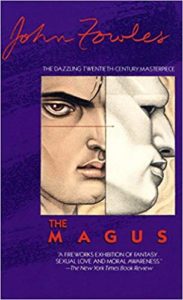
The Magus, by John Fowles
Apart from some troubling misogyny, John Fowles’s 1965 masterpiece, revised in 1977, remains essential reading. It’s sheer delight in Scheherazade-style storytelling—tales within tales—is infectious, as layer upon layer of falsehoods are peeled back to reveal ‘truths’ that prove to be anything but. I read it again last year, having first devoured it in my year off, when the novel made a deep impression on my adolescent mind. I realize now that this is the book that first made me want to write. Set on a remote Greek island, it follows a young man, Nicholas Urfe, who is teaching at a local school. He soon comes across Conchis, a mysterious, wealthy recluse living on the far side of the island with a beautiful woman—or maybe two beautiful women. Let the ‘godgame’ begin. A rite of passage novel with mind-bending twists.
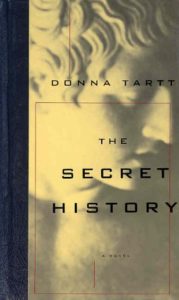
The Secret History, by Donna Tartt
Donna Tartt’s cool, erudite page-turner also has a magus at its centre: Julian Morrow, a lecturer in the Greek myths at a fictional campus university called Hampden. The book’s narrator, Richard Pappin, is determined to be admitted into Morrow’s select band of students, and invents a past—a secret history—to cover up for his own drab upbringing. Any novel that has someone assuming a different identity has my vote. Tartt also taps into that desire in all of us to want to be included in something select and exclusive. And along the way she makes us feel more educated about Greek mythology as we watch the twin human urges of Apollo’s reason and Dionysus’s sexual desire fight for supremacy.
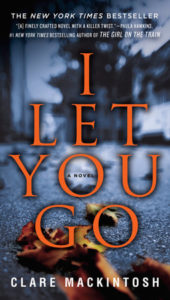
I let You Go, by Clare Mackintosh
Clare Mackintosh’s first book, I Let You Go, announced her as a major new force in thriller writing. Not only does Mackintosh mix up the genres—police procedural with psychological thriller—she also pulls off one of the greatest twists in a thriller. When I got to it, I had to go back to the beginning to examine the wiring and plumbing of the book, as it were, working out how exactly she had done it—and how I’d fallen for it. The twist checks out perfectly, withstanding envious scrutiny, and I’ve been inspired by her boldness ever since. Readers love a good twist but you have to make sure it operates on all levels and from every angle.
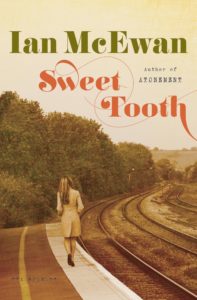
Sweet Tooth, by Ian McEwan
Not, perhaps, Ian McEwan’s most well-known novel, but Sweet Tooth is one of my personal favorites. I’m a succor for metafiction and the self-referential elements of this book are delicious. Serena Frome, an MI5 operative in the early 1970s, is instructed by her bosses to persuade left-leaning novelists to stop bashing the West. She focuses her attention – and literary funds, distributed through a fake cultural organization—on Tom Haley, a Sussex university PhD student who has had some success writing short stories. If Haley sounds familiar, he’s meant to: the student is a thinly disguised young McEwan, who wrote short stories before turning to novels. As for the success of Frome’s mission, all is revealed—or not—in a mercurial final twist.
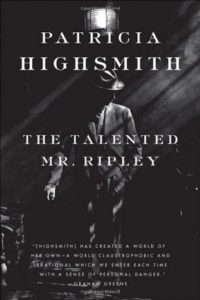
The Talented Mr Ripley, by Patricia Highsmith
Patricia Highsmith’s 1955 novel is the godfather of the modern psychological thriller, its influence stronger today than ever. The central idea of someone—Tom Ripley—assuming another’s identity is an ancient trope but Highsmith gives it a new spin. Despite Ripley’s obvious immorality, the reader roots for him, hoping that he’ll evade police capture and live the life he always wanted. It’s a phenomenal authorial achievement, particularly as Ripley’s envy leads him to murder, but there’s no happy ending. Ripley concludes the book in a state of paranoia and fear, a reminder that Highsmith’s moral compass may often be hidden but is still firmly in tact.
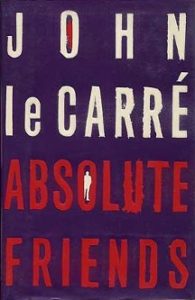
Absolute Friends, by John le Carré
This book is not everyone’s cup of tea, but Le Carré’s story of absolute friendship between naive idealist Ted Mundy and Sasha, a student who ends up working for the Stasi, inspired me to write spy thrillers. I still include occasional nods to the world of espionage in my suspense novels. Absolute Friends was published in 2003 and was le Carré’s first book to respond to the events of 9/11. The dramatic ending reflects his uncompromisingly dim view on America’s subsequent war on terror. The book also contains a literary curiosity. Is it significant that Mundy was born shortly after midnight on the first day of Pakistan’s independence from India? In 1997, le Carré began a literary spat with Salman Rushdie, author of Midnight’s Children, which rumbled on for 15 years. I like books with literary clues.
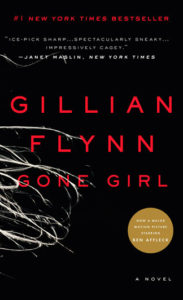
Gone Girl, by Gillian Flynn
The unreliable narrator and use of a split narrative have become staples of the modern suspense thriller and it’s all down to Gillian Flynn, whose third novel, Gone Girl, spawned a thousand imitators, many with “Girl” in the title. Nick Dunne and his wife Amy write alternating accounts of their stricken marriage, one in the present tense, the other in the past. I’ve shamelessly borrowed many of Flynn’s structural tricks in my own suspense novels and I defy anyone writing in this genre not to have been influenced by Gone Girl. What particularly impresses me about Flynn’s assured and stylish writing is the authenticity of Nick’s male voice. Both narratives, of course, turn out to be unreliable, leading to a big reveal and a second half that gallops to a satisfying conclusion.

